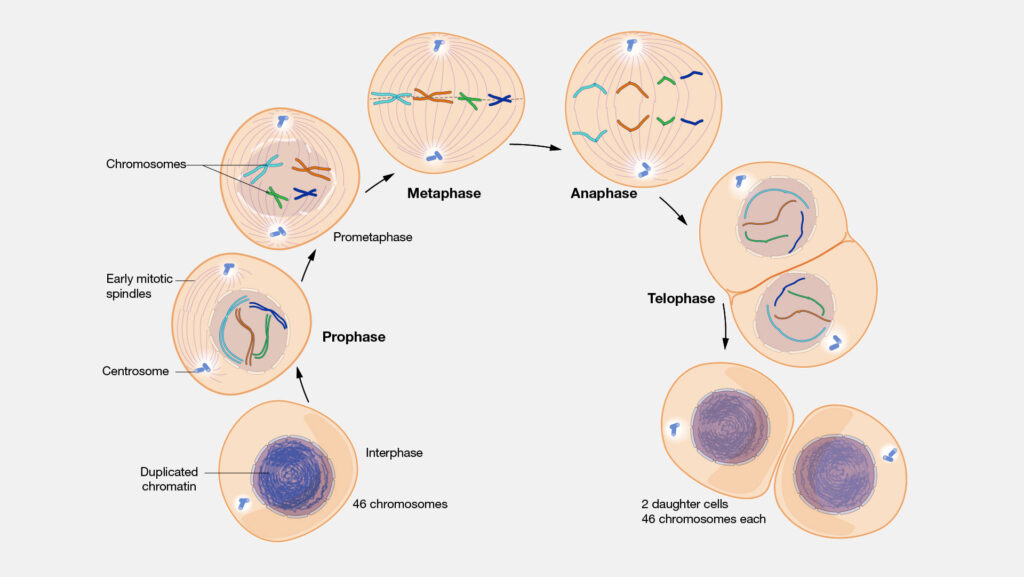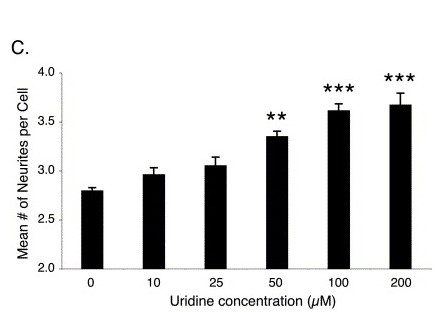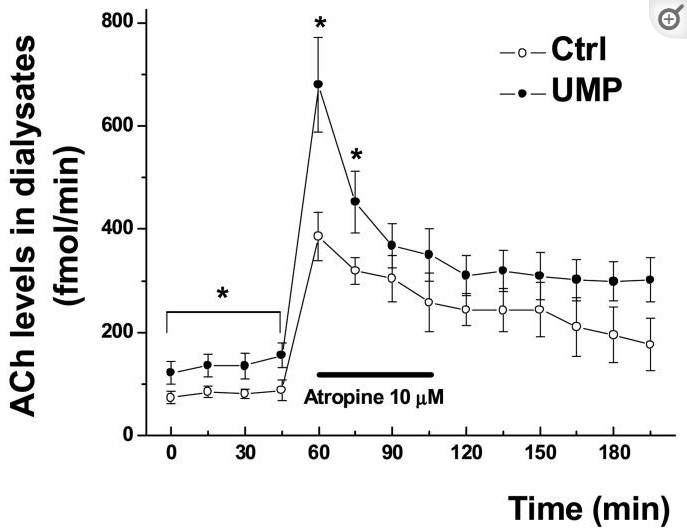Supplement Review #7: Uridine Monophosphate
What is Uridine Monophosphate?
Uridine monophosphate (UMP) is a nucleotide, which is a building block of RNA (ribonucleic acid). UMP is synthesized in the liver and is also found in dietary sources such as mushrooms, broccoli, and organ meats. UMP has been found to play a role in a variety of biological processes, including the biosynthesis of RNA and DNA, as well as in the regulation of various neurotransmitters in the brain. UMP supplementation has been studied for its potential cognitive enhancing effects and is commonly used as a supplement to improve memory and focus.
In addition, uridine is a precursor to several important brain chemicals, including phosphatidylcholine, which is a major component of cell membranes and is involved in cell signaling. Phosphatidylcholine is also a precursor to acetylcholine, a neurotransmitter involved in learning and memory. By supplementing with uridine monophosphate we can improve several aspects with positively impact our productivity, including neurogenesis (growth of neurons) and acetylcholine signaling.
Mechanism of Action
Uridine monophosphate (UMP) is bioavailable and can be taken orally as a supplement. When ingested, it can be converted to uridine and incorporated into the body’s total nucleotide pool, which can support various cellular processes. UMP can also cross the blood-brain barrier, allowing it to affect brain function directly.
Since RNA codes for proteins, by increasing the amount of nucleotides for RNA synthesis, we can upregulate several processes in the cell. This upregulation can lead to increased dopamine signaling and cell growth.
UMP also acts as a precursor to phosphatidylcholine (PC), the predominant lipid constituting our cell membranes. Since neurogenesis, the growth of neurons, depends on the cell going through mitosis, the cell needs to increase the amount of available PC, so it can successfully split into two distinct neurons.

Evidence from the Literature
There is a lack of evidence using UMP supplementation to improve aspects of memory or mood in humans. However, this should not steer us away from investigating its use as an aid in our daily life.
One paper investigated the effects of uridine monophosphate (UMP) on neuronal outgrowth in primary cultured neurons. The results showed that UMP significantly increased neurite length, the number of neurites, and the number of branch points in neurons. UMP treatment also increased the expression of genes related to neurite growth, including BDNF, NGF, and GAP-43. The authors concluded UMP has a positive effect on neuronal outgrowth.

Another study investigated the effects of uridine supplementation on learning and memory in rats subjected to hypobaric hypoxia, which can cause neuronal death and impair cognitive function. The researchers found that uridine supplementation improved learning and memory in the rats, and protected against hypoxia-induced neuronal death in the hippocampus. The study also suggested that uridine may enhance mitochondrial function in the hippocampus, which could contribute to its neuroprotective effects.
The last study I will mention aimed to investigate the effect of dietary supplementation with uridine-5′-monophosphate (UMP) on the acetylcholine level and release in the striatum of aged rats. The researchers found that the dietary supplementation of UMP significantly increased the levels of acetylcholine in the striatum of aged rats. This increase was also associated with enhanced release of acetylcholine. The results suggest that UMP supplementation can improve acetylcholine-related cognitive functions in aged rats.

Expectations, Dosing, and Long-Term Use
Uridine has been shown to improve many cellular functions attributing to enhanced productivity. Anecdotal evidence suggests supplementation with uridine monophosphate at 100-400 milligrams can feel stimulating, similar to caffeine. The effects of UMP supplementation take place around 15 minutes post-ingestion and can last around 2-4 hours depending on previous nootropic usage, sensitivity, and experience.
As always, initial dosing protocols should be at the lower end of the recommended range. As for UMP, this should be at 50-100 milligrams. Subsequent doses can be tapered until a dose of 300-400 milligrams is reached, where the maximum effects can be felt.
There is limited research on the long-term safety of UMP supplementation. However, short-term studies suggest UMP is safe and well-tolerated, with no serious adverse effects reported. It is always recommended to consult with a healthcare provider before starting any new supplement, especially for long-term use. It is important to follow recommended dosages and not exceed them.
Concluding Remarks
The evidence suggests that uridine monophosphate (UMP) supplementation can enhance productivity through multiple mechanisms, such as improving cognitive function, increasing acetylcholine levels, promoting neuronal outgrowth, and enhancing mitochondrial function. While the evidence is still limited, the results from animal and human studies are promising and warrant further investigation. UMP supplementation appears to be safe and well-tolerated, making it a potential option for those looking to improve their productivity.